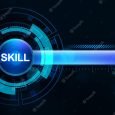:max_bytes(150000):strip_icc()/female-athlete-exercising-on-box-jump-in-gym-576573520-c629dc1c6873438aba6e90c9acd72ff1.jpg)
Welcome to our blog, where we unravel the mysteries behind skill-related fitness and its connection to heredity. Have you ever wondered why some individuals seem naturally gifted in sports or other physical activities? Or perhaps you’ve marveled at the seemingly effortless coordination of athletes and dancers? Well, prepare to dive deep into the fascinating world of skill-related fitness as we explore how genetics play a significant role in shaping these abilities. Whether you’re an athlete looking for insights or simply curious about human potential, this article will provide valuable information on the intricate link between heredity and skill related fitness. So let’s lace up our sneakers and get started!
Understanding Skill-Related Fitness Components
Skill-related fitness components refer to the specific qualities and abilities that contribute to an individual’s overall physical performance in activities requiring skill. These components are essential for excelling in sports, dance, martial arts, and various other disciplines. The main skill-related fitness components include agility, balance, coordination, power, reaction time, and speed.
Agility is the ability to change direction quickly and efficiently while maintaining control of your body movements. Balance refers to the ability to maintain equilibrium both statically (while stationary) and dynamically (during movement). Coordination involves synchronizing different parts of your body to execute complex movements with precision. Power is a combination of strength and speed; it enables you to generate force rapidly. Reaction time measures how quickly you can react and respond to external stimuli. Speed represents how fast you can move your body from one point to another.
Understanding these skill-related fitness components will help us delve deeper into their connection with heredity as we explore the role genetics play in shaping these physical attributes.
Delving into the Connection Between Heredity and Skill Related Fitness
Understanding the connection between heredity and skill-related fitness is a fascinating topic that sheds light on our genetic predispositions towards certain physical abilities. When it comes to skill-related fitness components such as coordination, agility, balance, power, speed, and reaction time, there is evidence to suggest that genetics plays a significant role in determining our aptitude for these skills.
Research has shown that certain genes can influence traits related to skill-related fitness. For example, studies have found specific gene variations associated with better coordination or faster reaction times. these genetic factors can affect muscle fiber type composition, neuromuscular function, and even the development of motor pathways in the brain.
While genetics can provide a foundation for skill-related fitness potential, it’s important to note that environmental factors also play a crucial role. Training methods and practice are essential in honing these skills regardless of genetic predisposition. So while you may have inherited some advantages or disadvantages when it comes to skill-related fitness components like coordination or speed from your parents, remember that hard work and dedication can still lead to significant improvements.
By delving into the connection between heredity and skill-related fitness, we gain a deeper understanding of how our genetic makeup influences our physical capabilities. This knowledge allows us to tailor training programs more effectively based on individual strengths and weaknesses in order to optimize performance levels. However, it’s essential not to solely rely on genetics as an excuse or limitation but instead use this information as motivation for continued growth and improvement through focused training efforts.
Defining Coordination in Skill Related Fitness
When it comes to skill-related fitness, one key component that plays a vital role is coordination. But what exactly does coordination mean in the context of fitness? In simple terms, coordination refers to the ability to integrate and synchronize different movements of various body parts.
In order to perform any physical activity or sport effectively, it is crucial to have good coordination skills. This involves the ability to control your body’s movements with accuracy and precision. Whether it’s throwing a ball, jumping hurdles, or performing complex dance routines, having well-developed coordination allows you to execute these actions with grace and efficiency. Coordination requires not only physical prowess but also mental focus as you need to coordinate your mind and body together seamlessly.
So next time you’re working on improving your skill-related fitness, don’t forget about the importance of developing your coordination abilities. It can make all the difference in how well you perform in various activities and sports! Keep practicing and honing those coordination skills for improved overall performance in skill-related fitness endeavors!
Further Resources on Skill-Related Fitness
When it comes to understanding skill-related fitness, there is always more to learn. If you’re looking for further resources on this topic, there are plenty of options available to expand your knowledge and enhance your understanding.
One great resource is online articles and blogs that delve deeper into the different components of skill-related fitness. These articles often provide in-depth analysis and practical tips on how to improve specific skills like agility, balance, coordination, power, reaction time, and speed. They can be a valuable source of information for athletes, coaches, or anyone interested in optimizing their physical performance.
Another helpful resource is books that focus on skill development and training techniques. These books may cover topics such as biomechanics, motor learning theory, sports psychology strategies, and exercise programming specifically designed to enhance skill-related fitness. They can provide a comprehensive overview of the science behind these components and offer practical advice on how to incorporate them into your training regimen.
Whether you prefer reading articles or diving into books written by experts in the field of exercise science or sport-specific training manuals authored by experienced coaches; these resources will help deepen your understanding of skill-related fitness concepts while providing insights on effective ways to improve your performance!
Relevant Articles
If you’re eager to dive deeper into the topic of skill-related fitness and its connection to heredity, there are several informative articles that can provide you with valuable insights. These resources offer a wealth of knowledge from experts in the field, helping you gain a better understanding of how genetics influence our physical abilities.
One article worth exploring is “The Role of Genetics in Skill-Related Fitness,” which delves into the genetic factors that contribute to various components of skill-related fitness. It examines scientific studies and research findings that shed light on how our genes impact our coordination, agility, power, speed, and reaction time. This comprehensive piece offers an in-depth exploration of the intricate relationship between heredity and skill-related fitness.
Another interesting read is “Unraveling the Genetic Code: How Heredity Shapes Our Athletic Performance.” This article explores how specific genes influence athletic ability by examining case studies and genetic mapping techniques. From endurance sports like long-distance running to explosive sports like sprinting or weightlifting, this article highlights how variations in certain genes play a significant role in determining individual differences in performance levels.
By delving into these relevant articles, you’ll expand your knowledge on the fascinating connection between heredity and skill-related fitness. With each new insight gained through these resources, you’ll be better equipped to comprehend just how much genetics influences our physical capabilities. So grab your reading glasses and prepare for an enlightening journey into this captivating subject!
Engaging in Discussion Comments
We hope this article has shed some light on the role that heredity plays in skill-related fitness. While genetics may play a part in determining our inherent abilities and predispositions, it is important to remember that skill-related fitness can still be improved through training and practice.
Now we invite you to join the conversation! Share your thoughts, experiences, or any additional information you have about the connection between heredity and skill related fitness in the comments section below. We would love to hear from you and continue exploring this fascinating topic together.
Remember, everyone’s journey towards achieving their personal best looks different. Understanding how heredity influences our skill-related fitness components can help us make more informed decisions when it comes to setting goals and choosing activities that align with our natural strengths.
So let’s keep learning, growing, and encouraging each other as we strive for greatness in our own unique ways!
Thank you for reading and participating in this discussion. Stay tuned for more insightful articles on health, wellness, and physical performance.




